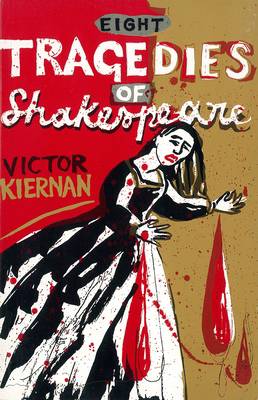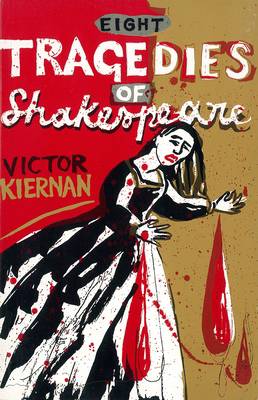
En raison d'une grêve chez bpost, votre commande pourrait être retardée. Vous avez besoin d’un livre rapidement ? Nos magasins vous accueillent à bras ouverts !
- Retrait gratuit dans votre magasin Club
- 7.000.000 titres dans notre catalogue
- Payer en toute sécurité
- Toujours un magasin près de chez vous
En raison de la grêve chez bpost, votre commande pourrait être retardée. Vous avez besoin d’un livre rapidement ? Nos magasins vous accueillent à bras ouverts !
- Retrait gratuit dans votre magasin Club
- 7.000.0000 titres dans notre catalogue
- Payer en toute sécurité
- Toujours un magasin près de chez vous
27,45 €
+ 54 points
Format
Description
The seventeenth century saw the brief flowering of tragic drama in western Europe as a whole and in England in particular. It was, argues Victor Kiernan, the artistic expression of the consciousness of change which permeated every aspect of life during this period. In this companion volume to Shakespeare: Poet and Citizen Kiernan sets out to rescue Shakespearean studies from the increasingly solipsistic terrain of literary criticism, focusing instead on historical location as a means to understanding Shakespeare's writing. Kiernan contends that the deep and accelerating changes in economy and society, brought about by the development of modern capitalism, drew the underlying tragic tensions of the History plays to the forefront. Other writers were feeling similar influences and across Western Europe, especially in France and Spain, tragic drama became a popular form. Kiernan shows how England's supremacy in this genre was both a mirror and a result of the profound nature of its social and economic development and the uncertainty and anxiety which it created. Opening with a sketch of the progress of the theatre, Kiernan goes on to provide a portrait of Shakespeare as a professional. He then considers each of the eight tragedies from Julius Caesar to Coriolanus, drawing out their contrasts and recurring themes. In a final section he analyses the group as a whole and explores attitudes to the monarchy, political life, war, religion and philosophy and the relationship between the sexes.
Spécifications
Parties prenantes
- Auteur(s) :
- Editeur:
Contenu
- Nombre de pages :
- 296
- Langue:
- Anglais
Caractéristiques
- EAN:
- 9781859840894
- Date de parution :
- 17-04-96
- Format:
- Livre broché
- Format numérique:
- Trade paperback (VS)
- Dimensions :
- 152 mm x 232 mm
- Poids :
- 521 g

Les avis
Nous publions uniquement les avis qui respectent les conditions requises. Consultez nos conditions pour les avis.






